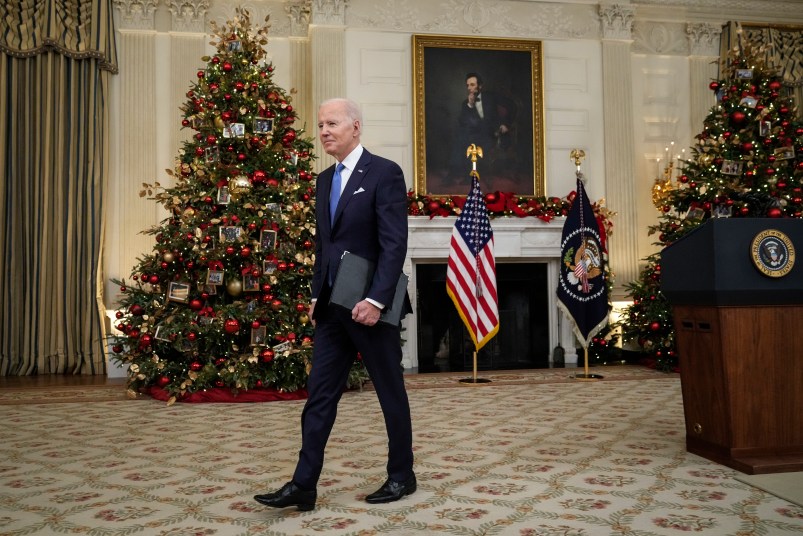Your intermittent briefing on negotiations over the reconciliation bill.
President Joe Biden told reporters Tuesday that he still thinks “there’s a possibility of getting Build Back Better done.”
When asked if Sen. Joe Manchin (D-WV) had broken his word, Biden opted for diplomacy.
“Senator Manchin and I are going to get something done,” he said.
No Bridges Burnt?
- Biden isn’t the only one keeping lines of communication open with Manchin (“Some people think maybe I’m not Irish because I don’t hold a grudge,” Biden quipped.)
- Rep. Pramila Jayapal (D-WA) reached out to Manchin Tuesday morning and asked him to agree to the framework Biden said Manchin had committed to back in the fall: A one-year child tax credit extension, Affordable Care Act subsidies, universal pre-K, money for climate change mitigation, etc. Jayapal essentially asked Manchin to take the House reconciliation bill and cross off what he wouldn’t support, according to the Washington Post.
- The conversation comes on the heels of Jayapal’s fairly brutal takedown of Manchin Monday, where she said that he’s shown a “lack of integrity” and that his word can’t be trusted going forward in negotiations.
- Sen. Mitt Romney (R-UT), characterizing the reconciliation bill as dead, is pushing for his version of the child tax credit. While Democrats would surely hate that it’s paid for by cutting other programs designed to fight poverty, the surprisingly generous proposal may get more juice if Democrats can’t pass any version of the reconciliation bill — or if they can only find the votes for one that omits the CTC. Like everything in the filibuster-controlled Senate, though, it’d be an uphill battle to pass through regular order. No other Republican senators have yet come out for Romney’s proposal.
Coal for Christmas
- The United States’ biggest coal mining union asked Manchin to reconsider his stance on the reconciliation bill.
- “We’re likely to lose coal jobs whether or not this bill passes,” the union’s chief lobbyist told the Post. “If that’s the case, let’s figure out a way to provide as many jobs as possible for those who are going to lose.” The tax incentives in the reconciliation bill, he argued, is the way to do that.



